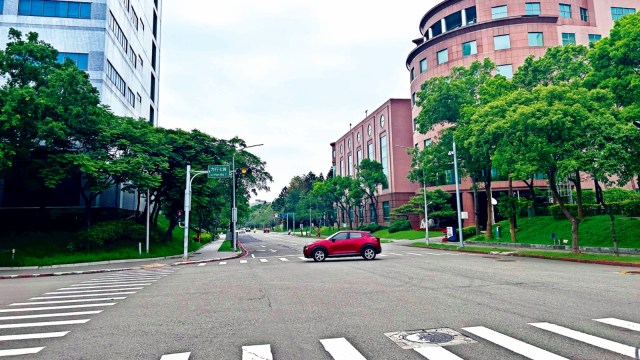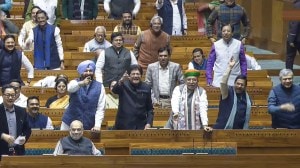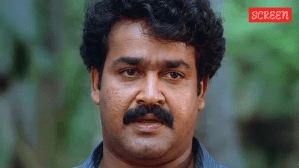THAT TAIWAN and India ought to be strategic partners, especially in chip fabrication, is a steady refrain in Taipei City and New Delhi. Taiwan is an undisputed world leader and India is keen to make late inroads in this domain. On the ground, however, the partnership faces challenges even as there’s a shared sense of strategic alignment.

In the partnership announced with Tata Electronics Pvt Ltd (TEPL), the Taiwanese company is not contributing equity, and restricts its exposure to providing technological expertise on licensing basis.
One reason why this new model is being tried out, said a Taiwanese executive associated with the policy aspects of chipmaking, is because key players want to play it safe. PSMC is a relatively smaller company and so has “negotiated a model where they would not need to put money on the table. I’m not sure how this model progresses,” the executive said.
This is unlike the venture the other big player, Taiwan Semiconductor Manufacturing Company (TSMC), is undertaking abroad – the company’s new fab in the Japanese city of Kumamoto, two $40 billion facilities in Phoenix, Arizona, and a commitment to invest nearly $4 billion to build a fab in Dresden, Germany.
In these new fabs, apart from significant equity investment, TSMC, the ninth-most valuable business in the world, is an equity partner, and has invested in the ecosystem; it has taken along its key vendor base of some 25-30 companies to each of these locations, and is also undertaking large-scale training of manpower on the nuances of chip fabrication, a high tech-intensive job.
In the Tata-PSMC venture, much of the heavy lifting is done by the Tatas, who have no real experience in chip manufacturing so far. “Part of the reason for a lack of response by TSMC or United Microelectronics Corp (UMC), the other big Taiwanese chipmaker, is because they were all busy with investment pledges in the developed world,” the Taipei-based executive said.
Story continues below this ad
The government, however, is keen to address the apprehensions of the industry. Towards this, a senior government official was in Taipei earlier this month to speak with them on issues ranging from the absence of ancillaries or an ecosystem to tech gaps and the dearth of talent. “The Tatas are a very serious player and that both sides have enough skin in the game,” the government official said.
Tata Electronics has maintained that the partnership with PSMC provided it “access to a broad technology portfolio in leading edge and mature nodes including 28nm (nanometre), 40nm, 55nm, 90nm & 110nm and also collaboration for high volume manufacturing”. Randhir Thakur, CEO & MD, Tata Electronics had said in February during the launch of the Dholera facility in Gujarat that the venture would help the company “serve our global customers’ requirements for supply chain resilience and meet the growing domestic demand”.
Since the escalation in US-China tensions, a number of companies, including those from Taiwan, have looked to diversify from Beijing and consider alternate destinations for their supply chains. India has rolled out a $10 billion chip incentive scheme, which has found some success in attracting the one foundry investment so far (TEPL, with technical assistance from PSMC).
The fact is, for TSMC to be successful outside Taiwan, it takes more than just its expertise. It takes its suppliers along so that an ecosystem develops locally for the construction expertise, material supplies, and equipment deliveries. For instance, TSMC has moved around 40 Taiwanese companies to Japan (for the new plant in Kumamoto), and taken around 30 of them to Arizona for the new plants.
Story continues below this ad
Contrast that with India, where PSMC may offer the technology knowhow, but the task of assembling the intricate supply chain network or training the requisite talent pool is left to the Indian partner. “It might be tough for the Tatas to manage this on their own. There was a team from the Tatas that was here recently to be trained by PSMC. They (TEPL) do not yet have the experience in the basic steps in chipmaking, such as designing a cleanroom layout. Cleanroom layout is the most basic thing in chip fabrication, but is also very difficult… Chipmaking requires many more engineers working across different fields,” a person aware of the exercise said.
MeITY officials have, however, consistently maintained that India has the “talent and deep expertise” to become a global player in the semiconductor value chain and that more interest is expected to come in from global players in fab investments.
From a Taiwanese perspective, there are also some gaps in the perceived policy support extended by New Delhi. “For chipmaking, we need to have a comprehensive ecosystem with every company located within two hours of driving time. So if anything goes wrong, any of the suppliers, the engineers, or the support people can physically come to the plant and resolve the problem in less than two hours, even in the dead of night. In India, the facilities are not necessarily being envisaged together, the fab might be in one place and the packaging plant is being planned somewhere else. There could be political considerations for this kind of planning, pressure from provisional governments etc,” the person quoted above said.
“The other worry from Taiwan’s perspective is the lack of clarity on India’s ability to deliver on the supporting infrastructure, including round-the-clock electricity supplies, continuous and pure water availability, and high grade silicon,” the person quoted above said.
Story continues below this ad
In terms of policy, Taiwanese players share two major concerns: the fact that MeITY, the nodal ministry for overseeing the chip push, is not in-charge of the skilling effort, which is under a different ministry. The other issue is India’s unpredictable trade policy, where duties and new licensing norms are imposed overnight, and the direction of the tariff lines is broadly moving upwards.
Further, India is not part of any major multilateral trade deal, unlike say Vietnam, Cambodia or Malaysia, which makes it that much more difficult to be part of the global value chain, an imperative for an item such as semiconductor chips. There is the concern that India is focused on tracking its balance of trade with individual countries. If a Taiwanese company were to fabricate chips in India, a lot of inputs would be imported, at least initially, an expert said. There are concerns this could lead to a trade imbalance, which could trigger a sudden duty imposition.
Finally, there are warning signs being drawn from the Foxconn-Vedanta deal, touted as the first chipmaking project before falling by the wayside. “In Taiwan, Foxconn is the single largest investor in India, with some 41 operational factories and a pledge to invest more. The concern here is that if even Foxconn could not manage to make a headway with New Delhi on the chips venture, others would find it even tougher. Was Foxconn saddled with a partner and plant location?” an executive said.
Kristy Tsun-tzu Hsu, the director at premier Taipei-based policy think-tank Taiwan ASEAN Studies Center at the Chung-Hua Institution of Economic Research, described India as an increasingly important country for Taiwan as Taiwanese companies operating in China look to “decouple” their supply chains from that country. She, however, told The Indian Express that much ground has to be covered by New Delhi to convert this interest into actual physical relocations of Taiwanese production bases from China in view of Washington’s trade dispute with Beijing, and the Chinese military’s increasing muscle-flexing around Taiwan.
Story continues below this ad
The PSMC venture, she said, is an entirely new model for an outbound investment by a Taiwanese chipmaker. “In Chinese, there is a saying: when you start to wash your hair, you have to finish the job. They (PSMC) have not even wet the hair yet,” she said.

































